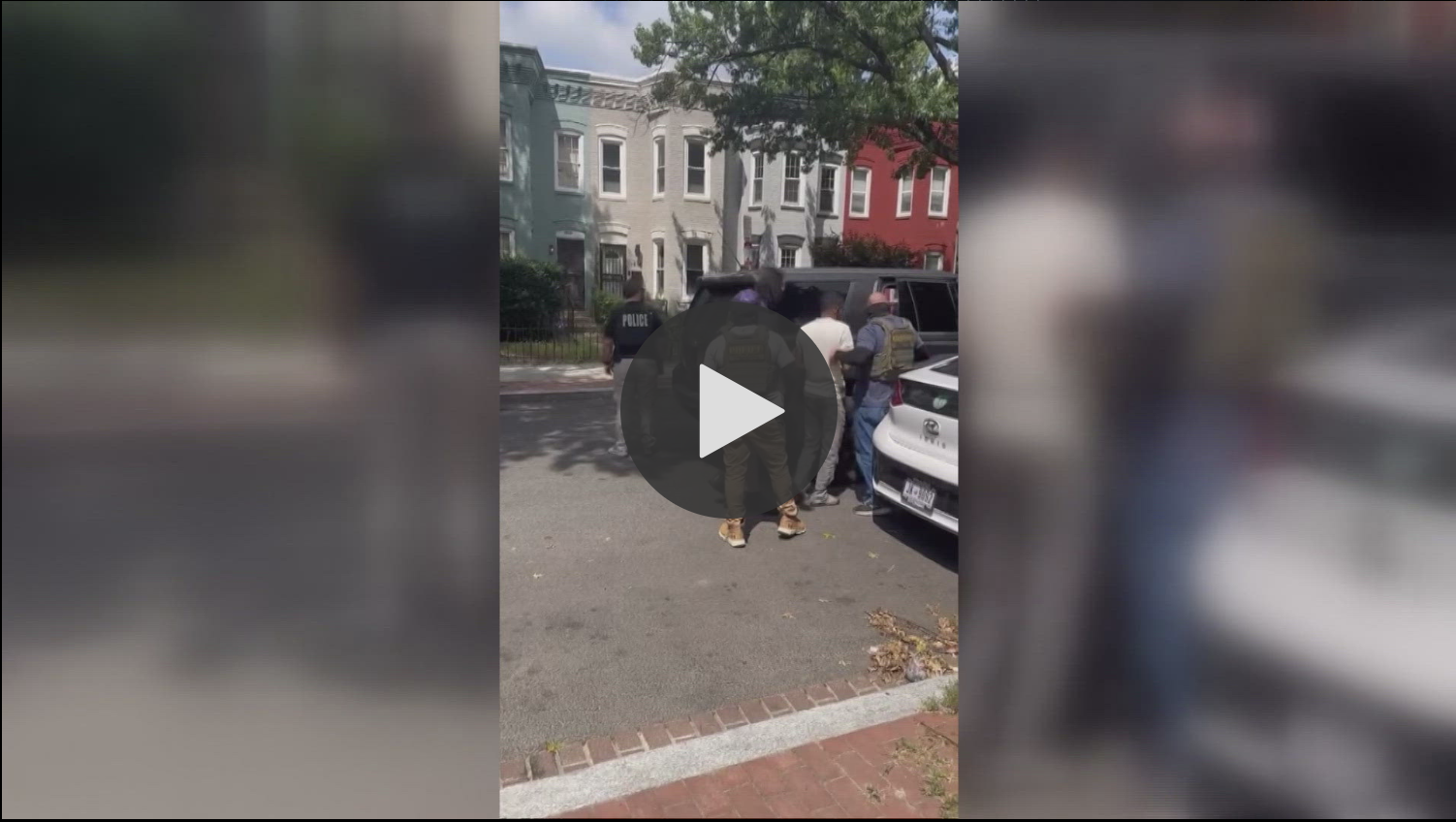In Washington, D.C., growing tensions have been ignited following a recent incident where federal officers arrested an Uber Eats driver delivering lunch to a local resident. This event has captured attention not only for its immediate impact on the community but also as a symbol of broader concerns regarding immigration enforcement practices and their consequences for immigrant workers and residents in the city.
The arrest took place in a busy neighborhood where a D.C. resident, who ordered food via Uber Eats, personally witnessed the federal agents detaining the delivery driver as he was completing his delivery. The resident described how officers handcuffed the driver, securing chains around his ankles and waist during the arrest, an act that appeared striking and deeply distressing to onlookers. Such operations by federal officials have stirred unease among local residents, especially within immigrant communities that form a significant part of the delivery workforce.
This incident is not isolated but part of a wave of immigration-related detainments by federal agencies in D.C. neighborhoods. Neighbors and delivery workers have reported increased federal immigration presence, which has led to fear among vendors and delivery personnel who rely on gig economy jobs to support themselves and their families. Many delivery drivers often work close to restaurants and businesses in the city, making them visible and vulnerable targets in these enforcement sweeps.
The rationale or legal grounds behind this particular arrest were not immediately disclosed by authorities, leading to frustration and calls for transparency. Local activists and community leaders argue that federal agents often fail to clearly identify themselves during these arrests, sometimes operating in unmarked vehicles and wearing face coverings, which adds to the fear and mistrust. These practices have led many to characterize the detainments as incidents of racial profiling targeting hardworking individuals rather than criminals.
City officials have responded to these developments with mixed reactions. While some local police leaders have issued directives that outline limited cooperation with federal immigration authorities, these new enforcement activities have visibly strained the relationship between law enforcement and immigrant communities. Community advocates emphasize the need for stronger protections and the assurance that immigrant workers are not targeted unjustly while merely trying to make a living.
The overall community response has been one of outrage and concern. Residents and activists have started distributing informational cards detailing constitutional rights to help those vulnerable to immigration apprehension assert their protections when confronted by federal officials. The rising frequency and audacity of these arrests have sparked demands for the city government to actively defend its immigrant residents and ensure their fair treatment.
What makes this topic particularly pressing is the human angle seen in the Uber Eats driver’s arrest — a figure many recognize as a humble, hard-working individual simply delivering meals to residents, not a threat to public safety. This has prompted broader discussions on the balance between enforcement and compassion, and how policies affect real people’s daily lives.
Key Points About the Incident and Its Context
-
The Uber Eats driver was arrested by federal officers while delivering lunch to a D.C. resident, who witnessed the event and observed the use of handcuffs and chains.
-
Such arrests have become part of a series of immigration enforcement actions in D.C., increasing fear among immigrant communities, especially gig economy workers.
-
Federal agents have been criticized for operating without clear identification, using unmarked vehicles, and adopting tactics perceived as racial profiling.
-
Local authorities have instituted limited cooperation policies with immigration officials, but these measures have not quelled fears of increased detentions.
-
Community groups actively distribute constitutional rights information to support vulnerable populations during interactions with enforcement agents.
-
The incident has triggered a city-wide dialogue on immigrant rights, law enforcement practices, and the socio-political climate influencing these enforcement actions.
This episode serves as a stark reminder of the human impact behind immigration policies and enforcement in urban settings, shining a light on the thin line between maintaining law and order and respecting human dignity and livelihoods. Many residents and advocates hope that increased awareness will lead to reforms that better protect immigrant workers and foster trust within Washington, D.C.’s diverse neighborhoods.












Leave a Reply